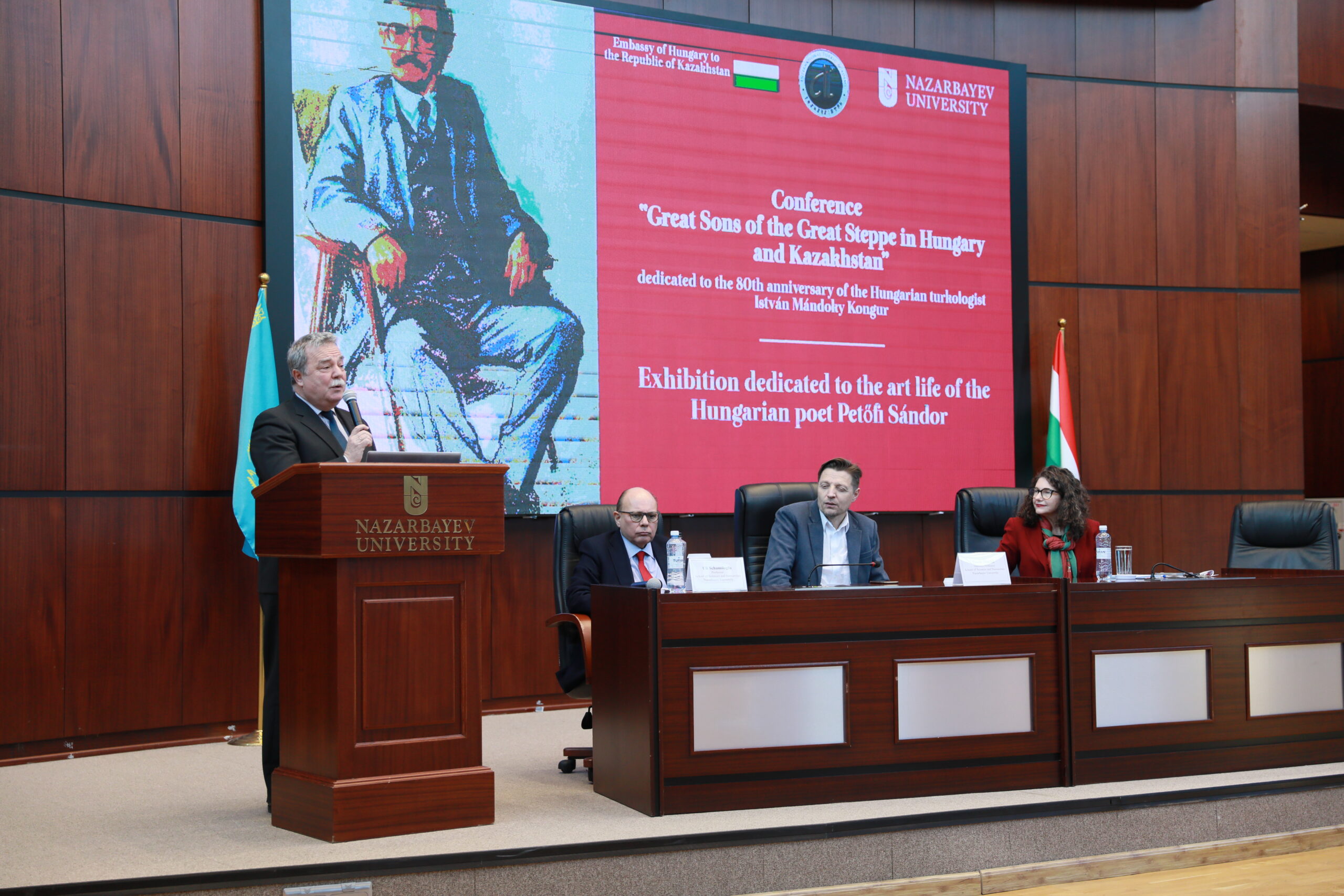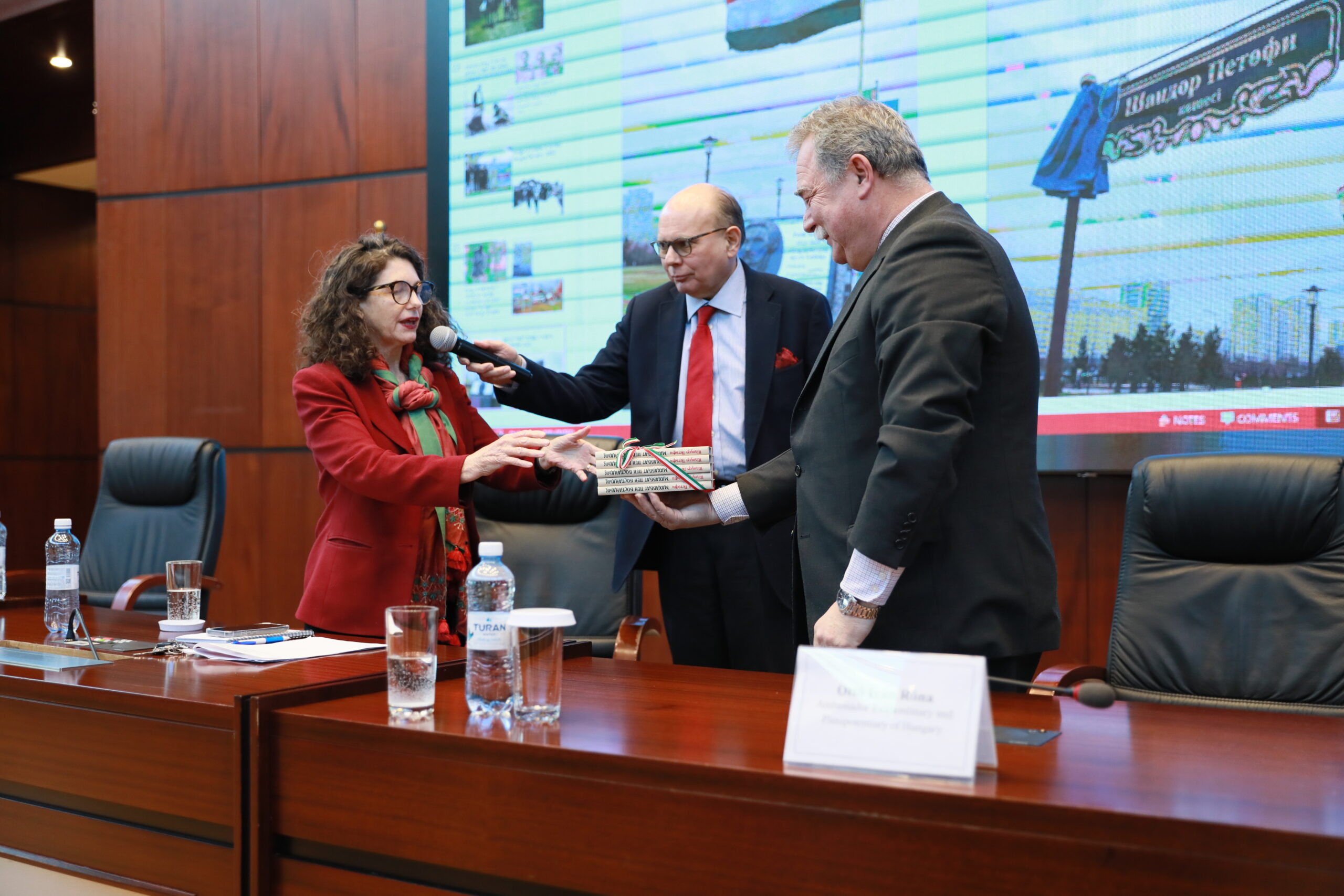ASTANA – A conference in Astana celebrated the legacy of Hungarian Turkologist István Mándoky and poet Sándor Petőfi with the presentation of the collection of Petőfi’s poems in the Kazakh language on Feb. 22.

From left to right: Ambassador of Hungary to Kazakhstan Ottó Iván Róna, NU Professor and Chair of the Department of Kazakh Language and Turkic Studies Uli Schamiloglu, NU Assistant Professor Dávid Somfai Kara and NU Vice Provost for Academic Affairs Loretta O’Donnell. Photo credit: NU press service
The conference organized by Nazarbayev University (NU) and the Hungarian Embassy in Kazakhstan was dedicated to the 80th anniversary of Mándoky and the 200th anniversary of Petőfi that took place last year.
According to Ambassador of Hungary to Kazakhstan Ottó Iván Róna, Petőfi was the leading Hungarian poet whose influence and relevance extended well beyond Hungary.
“My deep conviction is that in Petőfi’s poetry’s basic guiding line is love for freedom and I think it is very much relevant to each and every nation but especially with Kazakhstan. Kazakhs’ love towards freedom is undisputable and so it is Hungarians’. We do have this commonness in our soul that absolute love for freedom and sovereignty,” said Róna.

Presenting the re-edition of Petőfi’s poems in Kazakh language. Photo credit: NU press service
Vice President of the International Turkic Academy Erhan Türbedar spoke of the Mándoky’s meticulous scholarship that established deep roots between the two nations.
“István Mándoky has left an undoubted mark in Turkology and beyond through his dedication and scholarship,” said Türbedar.
“Throughout his life, István Mándoky engaged in numerous scientific expeditions and actively communicated with Turkic people whom he considered his brothers, fostering sincere and profound relationships. His works focusing on the Kipchak elements in Hungarian, his studies on the language of Turks, his travels to his beloved Kazakhstan and his studies covering Mongolia, Kyrgyzstan, Caucasus, Volga Tatars and Bashkirs have been relevant for a long time. He was a great friend of Kazakhstan and was also loved by Kazakhs,” he added.
The conference concluded with the hand-over of the collection of Petőfi’s poems in Kazakh language, “Love and Freedom.”

